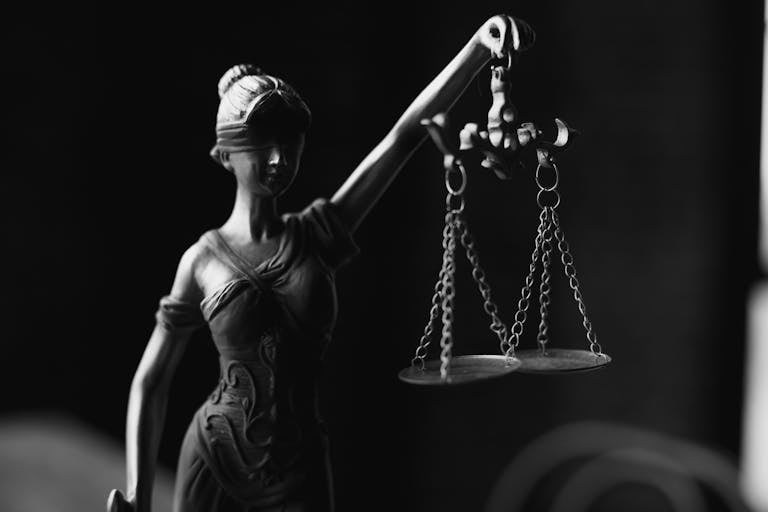Pornography Laws in California: (What You Need To Avoid In The Adult Entertainment Industry)
Introduction: Navigating the Complex Landscape of Adult Content and 311.11 Penal Code Laws
In the golden state of California, home to the epicenter of the adult entertainment industry, pornography laws play a crucial role in maintaining ethical standards and protecting individuals. But just how well do you understand these regulations? Consider these eye-opening statistics:
- The global pornography industry is valued at over $97 billion, with California contributing significantly to this figure.
- In 2023, California law enforcement reported a 15% increase in pornography-related offenses compared to the previous year.
- 35% of all internet downloads are pornography-related, highlighting the prevalence and potential legal risks in this digital age.
Let’s dive into the facts, figures, and legal landscape of pornography laws in California to ensure you stay on the right side of the law.
California Pornography and Child Pornography Laws: The Basics
- Definition of Pornography in California
- Legal distinction between pornography and obscenity
- First Amendment protections and limitations
- The legal definition of obscene material describes sexual conduct that is offensive and lacks serious value.
- Age of Consent and Participation
- Strict 18+ age requirement for all participants
- Penalties for involving minors in pornographic content
- Distribution and Sale Regulations
- Online distribution laws
- Brick-and-mortar adult store regulations
- Child Pornography Laws
- Zero tolerance policy
- Mandatory reporting requirements
- PC 311.1 and PC 311.11 are specific penal codes related to child pornography offenses, detailing the penalties and requirements for sex offender registration.
- Possession of child pornography under California Penal Code § 311.11 includes severe penalties and legal implications.
- Acts performed in a lewd or lascivious manner are prohibited under California Penal Code.
- Revenge Porn Legislation
- California’s pioneering role in criminalizing non-consensual pornography
- Civil and criminal penalties
- Workplace Regulations in the Adult Industry
- Health and safety requirements
- Employee rights and protections
- Public Display and Obscenity Laws
- Restrictions on public accessibility
- Community standards test for obscenity
Potential Consequences of Violating Pornography and Possession of Child Pornography Laws
Criminal Penalties
- Misdemeanor charges: Up to one year in county jail, both the fine and imprisonment as potential penalties, fines up to $2,000
- Felony charges: State prison sentences of 2-8 years, fines up to $100,000
- Sex offender registration requirements
Civil Consequences
- Lawsuits from affected individuals
- Damages and restitution payments
Professional Repercussions
- Loss of professional licenses
- Industry blacklisting
Social Impact
- Reputational damage
- Family and relationship strain
What to Avoid in the Adult Entertainment Industry: Lewd or Lascivious Manner
- Never work with minors or individuals without proper age verification
- Implement a strict age verification process
- Keep detailed records of age verification documents
- Be aware that mistakes in this area can lead to severe criminal charges. It is crucial to verify the ‘age of personally engaging’ in any content to avoid severe criminal charges.
- Always obtain clear, documented consent from all participants
- Use written consent forms for all performers
- Clearly outline all acts to be performed and how content will be distributed
- Consider video-recorded consent statements
- Avoid distribution in areas accessible to minors
- Implement robust age verification on websites
- For physical stores, ensure proper zoning and restricted access
- Be cautious with preview content that might be visible to minors. The use of ‘computer-generated equipment’ and ‘computer-generated image’ in the production of adult content has significant legal implications. Securely managing ‘data storage media’ is essential to ensure compliance with legal standards.
- Don’t engage in non-consensual filming or distribution
- Never film individuals without their knowledge and consent
- Be extremely cautious with hidden camera or “reality” style content
- Obtain explicit permission for each instance of distribution or re-distribution. Avoid ‘personally simulating sexual conduct’ involving minors, as it carries severe legal repercussions.
- Never mix illegal substances with pornography production
- Maintain a drug-free workplace
- Be aware that combining illegal substances with sexual content can lead to additional charges
- Avoid content that could be deemed obscene by local community standards
- Research local obscenity laws and precedents
- Be cautious with extreme or unusual content
- Consider consulting a lawyer for potentially controversial material
- Don’t neglect proper record-keeping
- Maintain detailed records of all productions
- Keep records of age verification, consent forms, and contracts for at least 7 years
- Ensure all records are compliant with 18 U.S.C. § 2257 regulations
- Avoid misleading marketing or false advertising
- Be truthful in all marketing materials
- Don’t use copyrighted materials without permission
- Avoid making health claims about adult products without proper substantiation
- Don’t ignore workplace safety and health regulations
- Implement proper sanitation practices
- Provide necessary safety equipment
- Follow all OSHA guidelines applicable to the adult entertainment industry
- Avoid crossing state lines without understanding varying laws
- Be aware that pornography laws can differ significantly between states
- Understand the implications of interstate commerce in adult content
- Consider consulting with legal experts when expanding to new jurisdictions
Real-World Scenarios
- The Amateur Filmmaker Sarah, 22, decides to film and sell adult content online without researching laws.
- Potential issues:
- Lack of proper record-keeping (violation of 18 U.S.C. § 2257)
- Insufficient age verification for co-performers
- Absence of written consent forms
- Potential distribution to states with stricter laws
- Consequences:
- Fines up to $50,000 for first-time 2257 violations
- Potential misdemeanor charges for record-keeping failures
- Civil liability if a co-performer claims lack of consent
- Possible felony charges if any performer is discovered to be underage
- Legal definitions: ‘Sexual conduct’ includes both actual and simulated acts such as sexual intercourse, oral copulation, and other lewd behaviors. ‘Sexual conduct’ can involve individuals of the same or opposite sex.
- The Vengeful Ex-Tom shares intimate videos of his ex-girlfriend without her consent.
- Legal violation:
- California Penal Code § 647(j)(4) (Revenge Porn law)
- Potential violation of copyright laws if he’s not the copyright holder
- Consequences:
- Misdemeanor charges with up to 6 months in county jail
- Fines up to $1,000
- Civil liability for damages, potentially including emotional distress
- Restraining order and potential impact on child custody if applicable
- Long-term reputational damage affecting employment opportunities
- Legal definitions: ‘Lascivious sexual act’ refers to conduct that is considered lewd or lascivious under the California Penal Code, which has significant legal implications.
- The Adult Store Owner Frank’s shop displays explicit materials visible from the street.
- Violation:
- California Penal Code § 313.1 (Display of harmful matter in public place)
- Potential zoning law violations
- Consequences:
- Misdemeanor charges with fines up to $2,000 and/or up to 1 year in county jail
- Potential loss of business license
- Civil liability if minors were exposed to the material
- Forced relocation of business if in violation of local zoning laws
- Reputational damage in the community
- The Overzealous Producer Mike, an adult film producer, encourages performers to engage in increasingly extreme acts without proper consent or safety measures.
- Legal issues:
- Potential violations of labor laws and workplace safety regulations
- Risk of assault charges if performers feel coerced
- Possible obscenity charges depending on the nature of the content
- Consequences:
- Civil lawsuits from performers for unsafe working conditions
- Criminal charges ranging from labor law violations to assault
- Industry blacklisting and loss of distribution channels
- OSHA fines and penalties for workplace safety violations
- Legal definitions: Content involving ‘sexual sadism’ can lead to severe legal consequences under California Penal Code 311.
Hot Topics and FAQs
- Digital Age Challenges
- Cryptocurrency and anonymous transactions in the adult industry
- Implications for age verification and consent tracking
- Potential for money laundering and tax evasion concerns
- VPN usage and jurisdictional issues
- Challenges in enforcing local laws on global platforms
- Debate over the responsibility of content hosts vs. content creators
- Deepfake pornography
- Legal gray areas in current legislation
- Potential for new laws specifically addressing AI-generated content
- Cam sites and live-streaming
- Real-time moderation challenges
- Cross-jurisdictional legal issues
- Legal issues surrounding simulating sexual conduct in digital and AI-generated content
- Emerging Legal Battles
- Internet censorship and adult content
- Ongoing debates about FOSTA-SESTA and similar legislation
- Balancing free speech with the protection of vulnerable individuals
- Sex worker rights and decriminalization efforts
- Impact on pornography laws and industry regulations
- Intersection with labor laws and worker protections
- The Sex Offender Registration Act imposes stricter penalties on individuals previously convicted of offenses involving minors, highlighting its role in governing repercussions for offenders.
- Frequently Asked Questions
- Q: Is all pornography legal in California? A: Not all pornography is legal. While California generally allows the production and distribution of pornography involving consenting adults, there are important restrictions:
- Obscene material, as determined by community standards, is illegal.
- Any involvement of minors in sexual content is strictly prohibited and severely punished.
- Non-consensual pornography (revenge porn) is illegal.
- Content involving animals, extreme violence, or non-consenting individuals is illegal.
- Q: Can I film adult content in my private residence? A: Yes, you can film adult content in your private residence in California, but you must comply with all relevant laws, including:
- Age verification and record-keeping requirements (18 U.S.C. § 2257)
- Obtaining and documenting consent from all participants
- Ensuring content doesn’t violate obscenity laws
- Complying with local zoning laws if running it as a business
- Following proper tax reporting for any income generated
- Q: What’s the difference between pornography and prostitution laws? A: While both involve sexual acts, there are key legal distinctions:
- Pornography involves filming sexual acts for distribution, with the payment being for the performance and filming, not the sexual act itself.
- Prostitution is a direct exchange of sexual acts for money or goods.
- Pornography is generally legal in California (with restrictions), while prostitution is illegal in most of the state.
- Pornography is protected under First Amendment free speech rights, while prostitution is not.
- Q: How do California’s pornography laws compare to other states? A: California tends to have more permissive laws compared to many other states:
- Some states have stricter obscenity standards.
- California’s age of consent (18) is higher than some states, affecting pornography production.
- California has strong revenge porn laws, which some states lack.
- The state’s worker protection laws affect the adult industry more comprehensively than in some other states.
- Q: What are the legal risks of viewing pornography online? A: For adults, viewing most pornography online is legal. However, risks include:
- Accidentally accessing illegal content (e.g., involving minors)
- Potential malware (computer software) or privacy breaches on less reputable sites
- Workplace or public viewing could violate other laws or policies
- Excessive use could potentially be used against you in legal proceedings (e.g., divorce cases)
Conclusion: Staying Informed and Compliant
Navigating the California child pornography laws requires diligence, respect for ethical boundaries, and a commitment to legal compliance. Whether you’re a consumer, creator, or industry professional, staying informed about these regulations is crucial.
Remember, the adult entertainment industry can be a minefield of legal and ethical challenges. When in doubt, always consult with a legal professional specializing in this area of law. Your career, reputation, and freedom may depend on it.
By understanding and respecting these laws, we can contribute to a safer, more ethical adult entertainment industry for all involved.







